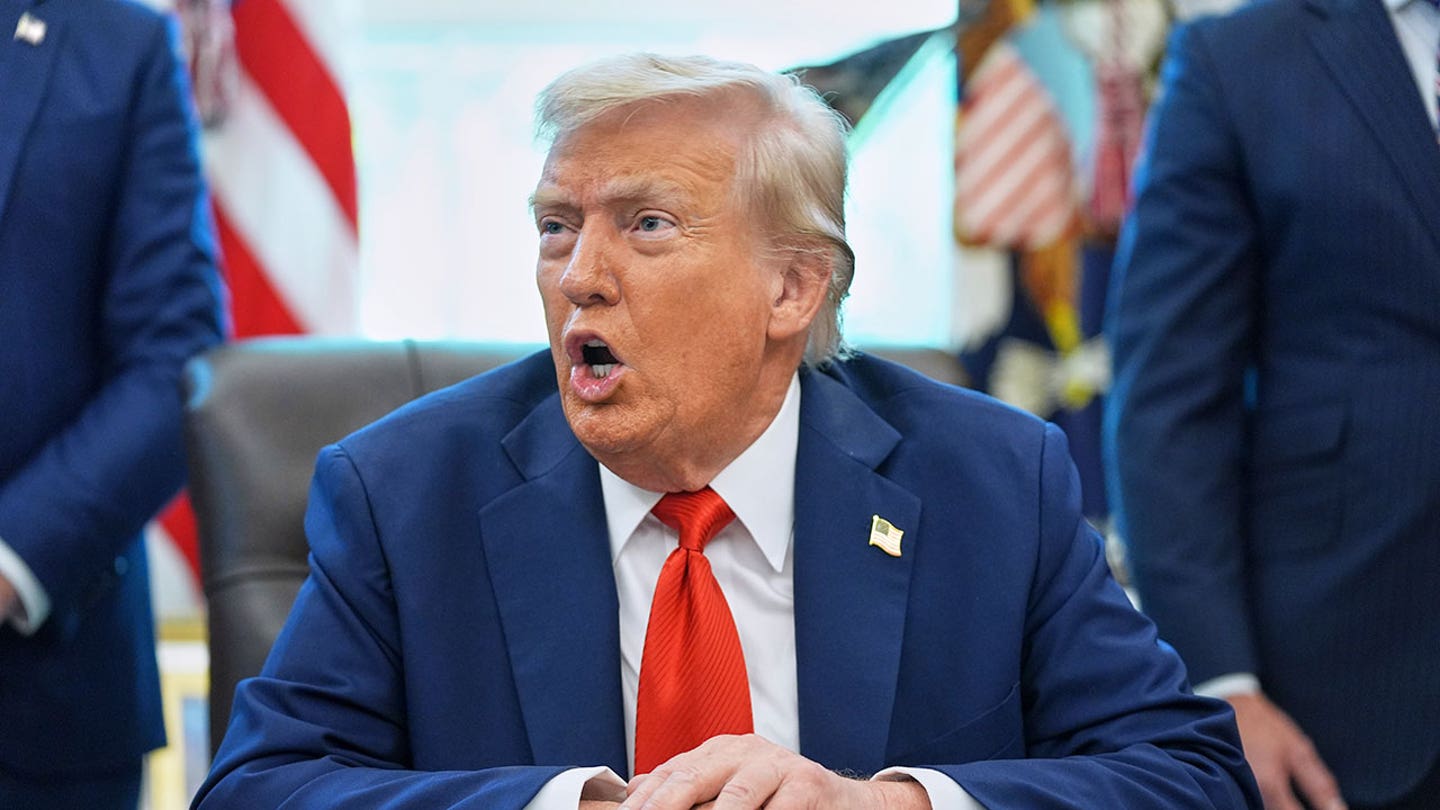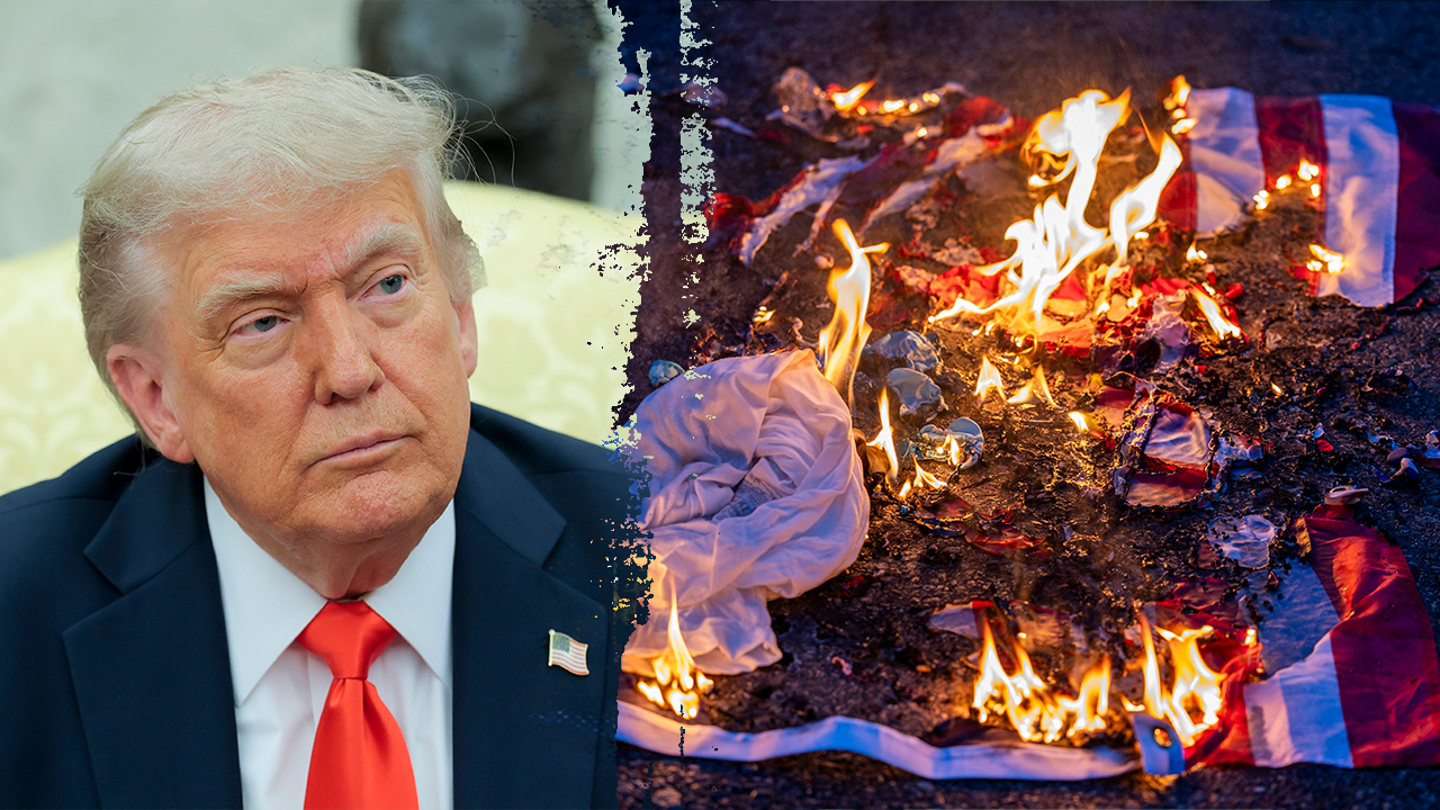
Democrats opposed John Bolton for years — until they sought him as an ally against Trump
Entities mentioned:
- John Bolton: Power, Influence, Professional pride
- Democrats: Political advantage, Justice, Moral outrage
- Donald Trump: Power, Control, Self-preservation
- Joe Biden: Duty, Justice, Competitive spirit
- George W. Bush: Power, Legacy, Security
- Adam Schiff: Justice, Duty, Competitive spirit
Article Assessment:
Credibility Score: 75/100
Bias Rating: 55/100 (Center)
Sentiment Score: 40/100
Authoritarianism Risk: 35/100 (Generally Democratic)
Bias Analysis:
The article presents multiple perspectives and historical context, showing a relatively balanced approach. However, there's a slight lean towards framing Democrats' actions as opportunistic, which could be interpreted as a center-right perspective.
Key metric: Political Polarization Index
As a social scientist, I analyze that this article highlights the complex and shifting nature of political alliances in the United States. The Democrats' evolving stance on John Bolton demonstrates how political motivations can override ideological consistency. This case study in political polarization shows how figures can be vilified or embraced based on their utility in opposing a common adversary, in this case, Donald Trump. The article underscores how the impeachment process and subsequent events have deepened partisan divides, with both sides willing to realign their allegiances for political gain. This flexibility in political positioning, while potentially pragmatic, may contribute to public cynicism about political consistency and principle, potentially eroding trust in democratic institutions.

‘Bold’ general who led US’ ‘Midnight Hammer’ strikes on Iran ends Middle East reign
Entities mentioned:
- Gen. Michael 'Erik' Kurilla: Duty, Professional pride, Determination
- U.S. Central Command (CENTCOM): Security, Control, Influence
- Pete Hegseth: Loyalty, Patriotism, Recognition
- Adm. Brad Cooper: Duty, Ambition, Professional pride
- Iran: Self-preservation, Power, Defiance
Article Assessment:
Credibility Score: 75/100
Bias Rating: 65/100 (Lean Right)
Sentiment Score: 65/100
Authoritarianism Risk: 35/100 (Generally Democratic)
Bias Analysis:
The article leans slightly right, evident in its positive portrayal of military action and leadership. The use of quotes from conservative figures like Pete Hegseth and the emphasis on strike operations indicate a pro-military stance typical of right-leaning media.
Key metric: Military Readiness and Projection of Power
As a social scientist, I analyze that this article highlights the changing of guard in U.S. Central Command, emphasizing the strategic importance of the Middle East in U.S. military operations. The focus on Gen. Kurilla's career and recent operations against Iran and Houthi rebels underscores the ongoing tensions in the region and the U.S.'s readiness to engage in military action. The transition to Adm. Cooper suggests continuity in strategy and approach. This leadership change and the highlighted operations impact U.S. military readiness and power projection by demonstrating operational capabilities and commitment to regional allies, while also potentially escalating tensions with adversaries like Iran.

Bolton unleashes on Trump Ukraine policy days after FBI raid
Entities mentioned:
- John Bolton: Revenge, Self-preservation, Justice
- Donald Trump: Power, Recognition, Legacy
- FBI: Duty, Justice, Security
- Vladimir Putin: Power, Control, Influence
- Pentagon: Security, Control, Professional pride
Article Assessment:
Credibility Score: 65/100
Bias Rating: 55/100 (Center)
Sentiment Score: 30/100
Authoritarianism Risk: 35/100 (Generally Democratic)
Bias Analysis:
The article presents multiple viewpoints, including criticisms of Trump's policies, but relies heavily on Bolton's perspective. While it includes some factual reporting, the emphasis on Bolton's critique slightly tilts the balance, though not significantly enough to be classified as partisan.
Key metric: International Relations and Diplomacy
As a social scientist, I analyze that this article highlights significant tensions in U.S. foreign policy, particularly regarding Ukraine and Russia. Bolton's critique of Trump's approach suggests a lack of coherence and strategy in diplomatic efforts, potentially weakening the U.S. position on the global stage. The reported FBI raid on Bolton's property adds another layer of complexity, indicating potential internal conflicts within the U.S. political establishment. This situation could impact U.S. credibility in international negotiations and alliances, especially concerning Eastern European security dynamics. The discord between different branches of government (White House, Pentagon) on Ukraine policy further underscores the challenges in maintaining a unified and effective foreign policy stance.

Mexican immigrant-turned-congresswoman blasts Dem claims Texas redistricting hurts Hispanic vote
Entities mentioned:
- Mayra Flores: Pride, Righteousness, Loyalty
- Republican Party: Power, Control, Competitive spirit
- Democratic Party: Power, Control, Justice
- Donald Trump: Influence, Power, Legacy
- Vicente Gonzalez: Power, Ambition, Professional pride
- Lloyd Doggett: Legacy, Self-preservation, Professional pride
- Gregorio Casar: Justice, Ambition, Moral outrage
- Chip Roy: Power, Competitive spirit, Loyalty
Article Assessment:
Credibility Score: 65/100
Bias Rating: 70/100 (Lean Right)
Sentiment Score: 55/100
Authoritarianism Risk: 40/100 (Generally Democratic)
Bias Analysis:
The article leans right, primarily featuring Republican perspectives and critiques of Democratic positions. While it includes some opposing viewpoints, the narrative favors conservative interpretations of the redistricting issue and Hispanic voter trends.
Key metric: Voter Representation and Engagement
As a social scientist, I analyze that this article highlights the complex interplay between demographic shifts, political realignment, and redistricting in Texas. The redistricting process is presented as a contentious issue, with Republicans claiming it better represents the changing political landscape, particularly among Hispanic voters, while Democrats argue it dilutes minority representation. This situation reflects broader national trends of changing party affiliations among minority groups and the ongoing debate over fair representation in the electoral system. The article suggests a potential shift in Hispanic voting patterns towards the Republican Party, which could have significant implications for future elections and party strategies. However, the conflicting interpretations of the redistricting's impact underscore the challenges in balancing demographic representation with political interests.

Trump threatens lawsuit over century-old Senate tradition delaying his nominees
Entities mentioned:
- Donald Trump: Power, Control, Frustration
- US Senate: Tradition, Control, Duty
- Chuck Grassley: Duty, Tradition, Loyalty
- Democratic Senators: Control, Opposition, Power
Article Assessment:
Credibility Score: 70/100
Bias Rating: 55/100 (Center)
Sentiment Score: 35/100
Authoritarianism Risk: 65/100 (Authoritarian Tendencies)
Bias Analysis:
The article presents Trump's perspective prominently but includes contextual information and opposing views. It sources from Fox News, which tends to lean conservative, but the content itself maintains a relatively balanced tone.
Key metric: Federal Judiciary Appointments
As a social scientist, I analyze that this article highlights a growing tension between executive power and legislative tradition. Trump's threat to sue over the blue slip process indicates an escalation in the ongoing struggle for control over judicial appointments. This conflict could potentially reshape the balance of power between branches and impact the speed and nature of judicial appointments. The president's frustration with what he perceives as obstruction may lead to increased polarization and potentially alter long-standing Senate practices.

Epstein estate hit with new House subpoena for 'client list,' call logs
Entities mentioned:
- House Oversight Committee: Justice, Duty, Influence
- James Comer: Ambition, Duty, Influence
- Jeffrey Epstein: Power, Control, Greed
- Alexander Acosta: Self-preservation, Duty, Professional pride
- Ghislaine Maxwell: Self-preservation, Loyalty, Power
- Bill Clinton: Self-preservation, Legacy, Influence
- Hillary Clinton: Self-preservation, Power, Influence
- William Barr: Duty, Professional pride, Loyalty
Article Assessment:
Credibility Score: 75/100
Bias Rating: 55/100 (Center)
Sentiment Score: 35/100
Authoritarianism Risk: 25/100 (Generally Democratic)
Bias Analysis:
The article presents multiple perspectives and includes statements from both Republican and Democratic representatives. While it leans slightly right by giving more space to Republican viewpoints, it still maintains a relatively balanced approach.
Key metric: Public Trust in Government Institutions
As a social scientist, I analyze that this article highlights a significant expansion of the House Oversight Committee's investigation into Jeffrey Epstein's case, which could potentially impact public trust in government institutions. The bipartisan nature of the initial investigation, followed by partisan disagreements, reflects the complex political dynamics surrounding high-profile cases. The subpoenas for various high-ranking officials and the estate's documents indicate a comprehensive approach to uncovering potential mismanagement or ethical violations. This increased scrutiny could either restore public confidence by demonstrating accountability or further erode trust if the investigation is perceived as politically motivated or inconclusive.

Trump’s flag-burning order draws rare fire from conservatives
Entities mentioned:
- Donald Trump: Power, Control, Patriotism
- Conservatives: Freedom, Righteousness, Justice
- Attorney General Pam Bondi: Duty, Loyalty, Control
- Supreme Court: Justice, Duty, Influence
Article Assessment:
Credibility Score: 75/100
Bias Rating: 55/100 (Center)
Sentiment Score: 35/100
Authoritarianism Risk: 65/100 (Authoritarian Tendencies)
Bias Analysis:
The article presents multiple viewpoints, including both supporters and critics of the executive order from conservative circles. While it leans slightly towards critical perspectives, it also includes defenses of the order, maintaining a relatively balanced approach.
Key metric: First Amendment Protections
As a social scientist, I analyze that this article highlights a tension between executive power and constitutional rights. The executive order targeting flag burning has created a rare divide among conservatives, traditionally united on issues of patriotism. This situation underscores the complex interplay between free speech, symbolic expression, and national identity in American politics. The order's attempt to reinterpret established Supreme Court precedent on flag burning as protected speech may lead to significant legal challenges and debates about the scope of First Amendment protections.

Trump opens door to 600,000 Chinese students amid Beijing trade talks
Entities mentioned:
- Donald Trump: Power, Control, Influence
- China: Power, Competitive spirit, Influence
- Marco Rubio: Security, Wariness, Duty
- Xi Jinping: Power, Influence, Control
- Joe Biden: Legacy, Influence, Duty
Article Assessment:
Credibility Score: 70/100
Bias Rating: 55/100 (Center)
Sentiment Score: 60/100
Authoritarianism Risk: 35/100 (Generally Democratic)
Bias Analysis:
The article presents multiple viewpoints and includes direct quotes, suggesting an attempt at balanced reporting. However, there's a slight lean towards framing Trump's decisions positively, particularly in contrast to the previous administration.
Key metric: US-China Economic Relations
As a social scientist, I analyze that this article highlights a significant shift in the Trump administration's approach to Chinese students in the US, potentially signaling a thaw in US-China relations. The decision to allow 600,000 Chinese students into the US appears to be a strategic move in the context of ongoing trade negotiations. This policy shift could have substantial economic implications, as international students contribute significantly to the US economy. However, it also raises questions about national security concerns previously expressed by administration officials like Marco Rubio. The article suggests that Trump is prioritizing economic benefits over security concerns, which could impact future policy decisions regarding China. The mention of tariffs and trade talks indicates that economic considerations are at the forefront of US-China relations, with educational exchanges being used as a potential bargaining chip.

'We're going to bring it home': Trump commerce secretary shares what's next after Intel deal
Entities mentioned:
- Howard Lutnick: Professional pride, Duty, Influence
- Donald Trump: Ambition, Legacy, Power
- Intel: Competitive spirit, Greed, Recognition
- China: Power, Competitive spirit, Security
Article Assessment:
Credibility Score: 55/100
Bias Rating: 65/100 (Lean Right)
Sentiment Score: 70/100
Authoritarianism Risk: 35/100 (Generally Democratic)
Bias Analysis:
The article leans right due to its positive framing of Trump administration policies and its presentation on a typically conservative-leaning program. The language used, such as 'bring it home', appeals to nationalist sentiments often associated with right-wing politics.
Key metric: US Economic Competitiveness
As a social scientist, I analyze that this article suggests a strategic move by the Trump administration to bolster US economic competitiveness, particularly in the tech sector. The deal with Intel, a major US semiconductor company, appears to be part of a broader strategy to strengthen domestic technology production and reduce dependence on foreign suppliers, especially China. This move could potentially impact US economic competitiveness by fostering innovation, creating high-skilled jobs, and securing critical supply chains. However, the limited information provided makes it difficult to assess the full scope and potential effectiveness of these initiatives.

Trump touts Kim Jong Un relationship amid South Korea summit
Entities mentioned:
- Donald Trump: Power, Recognition, Influence
- Kim Jong Un: Power, Self-preservation, Control
- Lee Jae Myung: Duty, Unity, Security
- Kim Yo Jong: Loyalty, Power, Control
Article Assessment:
Credibility Score: 65/100
Bias Rating: 55/100 (Center)
Sentiment Score: 45/100
Authoritarianism Risk: 35/100 (Generally Democratic)
Bias Analysis:
The article presents multiple viewpoints, including Trump's statements and contrasting perspectives. While it leans slightly towards emphasizing Trump's statements, it also includes counterpoints and context, maintaining a relatively balanced approach.
Key metric: International Relations and Diplomacy
As a social scientist, I analyze that this article highlights the complex dynamics of US-North Korea relations, particularly through the lens of former President Trump's personal approach to diplomacy. Trump's emphasis on his relationship with Kim Jong Un, despite the lack of concrete progress on denuclearization, suggests a prioritization of personal rapport over traditional diplomatic processes. This approach has implications for the consistency and long-term effectiveness of US foreign policy in the region. The article also touches on tensions with South Korea, a key US ally, indicating potential strains in that relationship. The juxtaposition of Trump's positive rhetoric towards North Korea with his critical comments about South Korea raises questions about the stability and coherence of US alliances in East Asia.